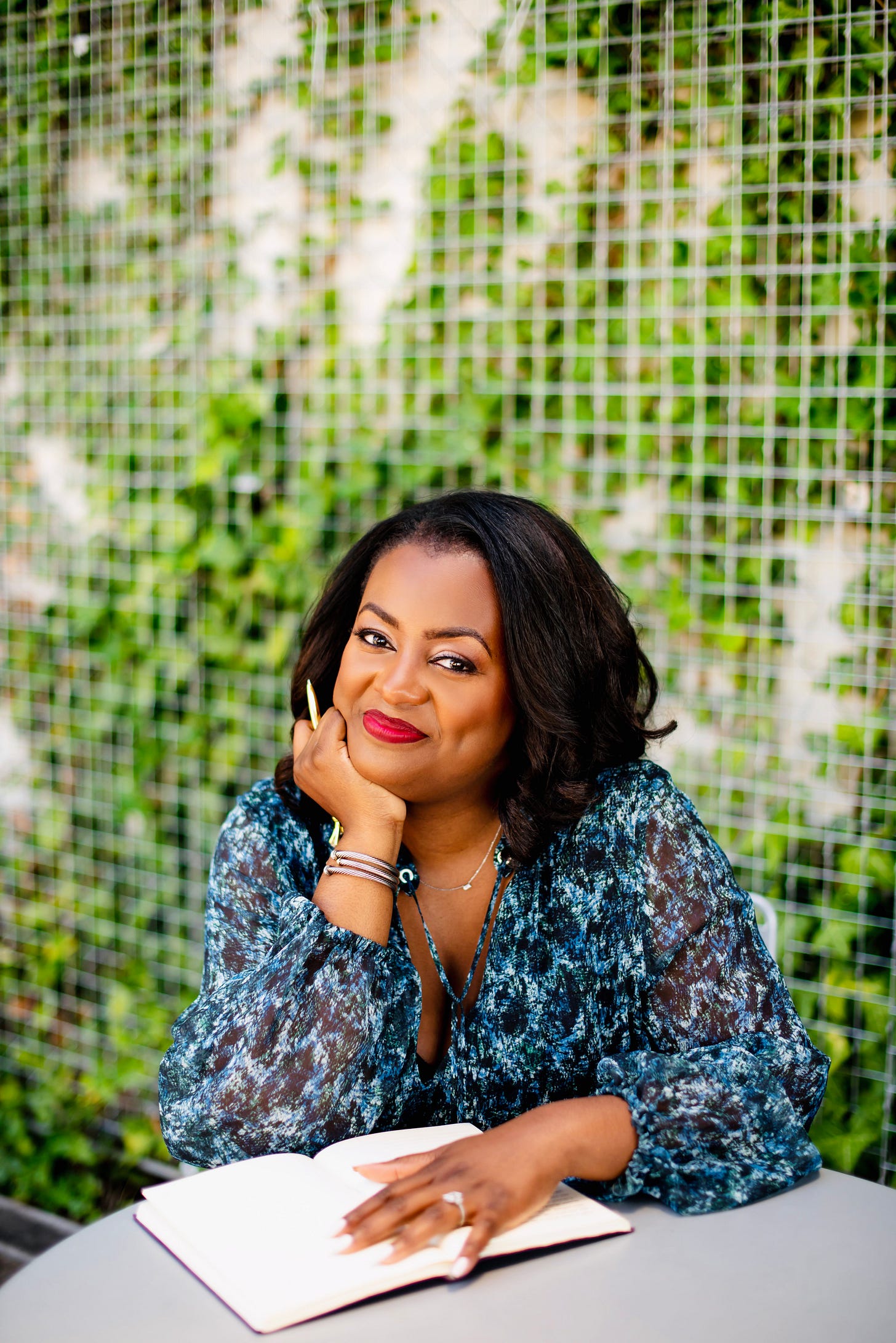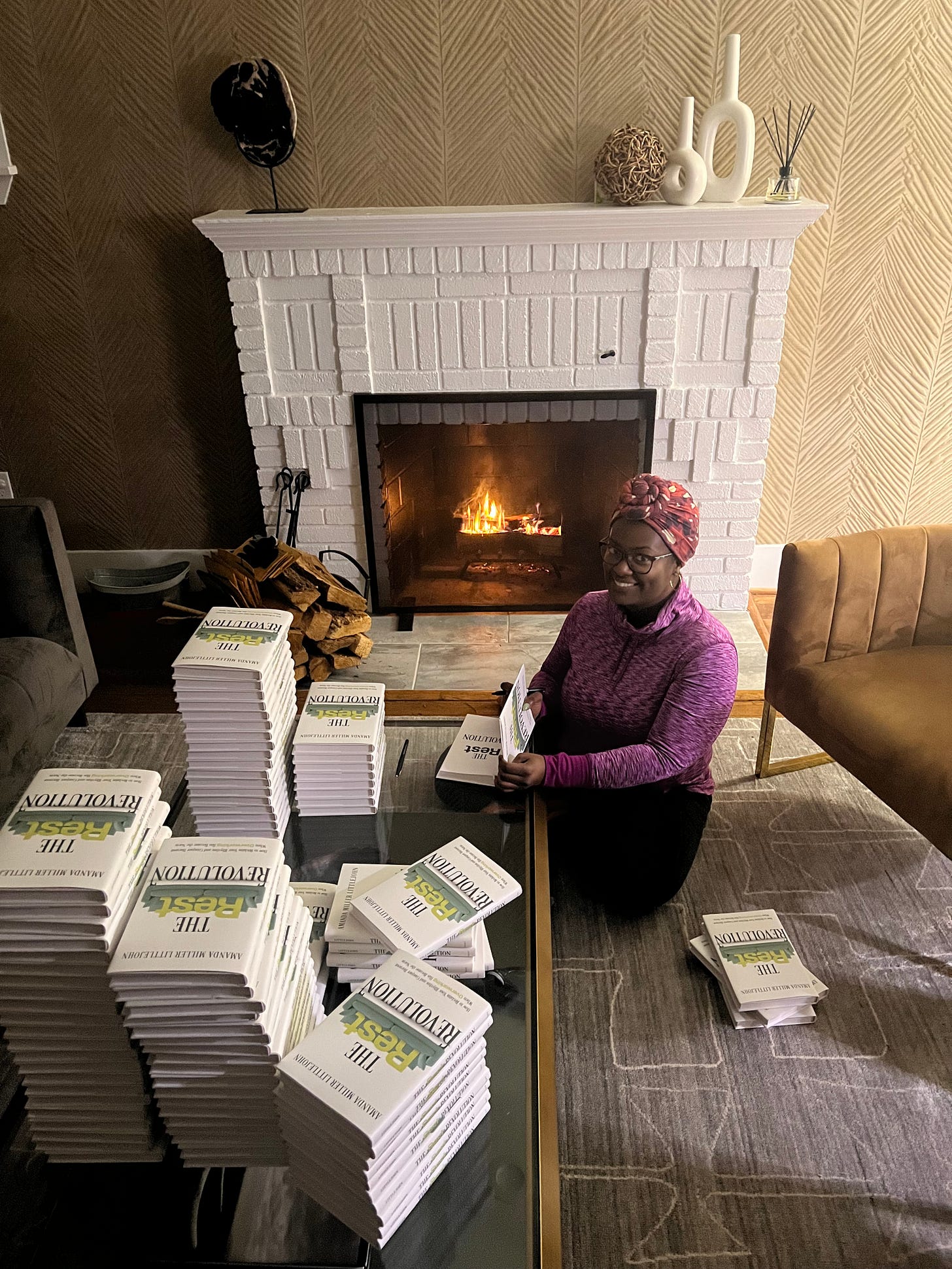The Realigning Interview No.1 - Alicia Smith
Alicia Smith on Rest, Renewal, and the Power of a Sabbatical
Editor’s Note: Introducing The Realigning Interview
Welcome to The Realigning Interview, a new series here on Substack where I’ll be featuring conversations with high achievers who are rethinking their relationship to work, rest, and ambition. Inspired by the stories I explored in The Rest Revolution, this series is an ongoing dialogue about burnout, productivity, and the deeper question of what it truly means to live well.
I’m honored to launch this series with Alicia Smith, whose journey of stepping away from work to embrace rest is both powerful and deeply resonant. Her honesty about the fears, challenges, and ultimate transformation of her sabbatical offers a perspective that so many of us need to hear. I’m grateful to Alicia for sharing her experience and modeling a new way of being.
I’d love to hear your thoughts! How much does Alicia’s story resonate with you? Have you considered taking a break from work, or are you in the process of realigning your own life? Let’s keep the conversation going in the comments.
Without further ado, here’s my conversation with Alicia Smith.
The Realigning Interview No.1 - Alicia Smith on Rest, Renewal, and the Power of a Sabbatical
Amanda: How did you first start contemplating a sabbatical?
Alicia: Over the past year, I had been following Black women—women like you—who were openly discussing rest, the need for it, and the fact that it’s okay to take a break. It took time for those messages to truly sink in. But eventually, I realized: You can do this. You will be okay. You will be okay if you step off this freaking hamster wheel.
But my initial fear was visceral. It felt like if I stepped away, I would somehow lose everything. I think it’s deeply ingrained—whether it’s capitalism, the realities of being a Black woman in America, or simply how we’ve been conditioned to equate our worth with our productivity. Our identity is often tied to what we produce and how we serve others.
And then, of course, there’s the financial piece. For those of us who have learned how to excel in our work, our financial stability is directly tied to our ability to perform. So if you step away from that, what happens? That fight-or-flight response kicks in.
Logically, I knew this, but I wasn’t prepared for the emotional and psychological impact. I thought I was just going to be luxuriating!
Amanda: You gave yourself permission to take a sabbatical before the physiological response to it set in. So mentally, you knew you needed it. But how long did it take for that fear to subside?
Alicia: My last day of work was June 30th. July and August were great—I was kicking back, enjoying myself, soaking up the summer. But then September hit. Everyone was heading back to work and school. Normally, I’d be at the Congressional Black Caucus Foundation’s Annual Legislative Conference, and suddenly, I felt untethered.
That’s when the fear set in. You don’t have a job. What are you doing with yourself?
It took a full six months for me to feel truly safe resting. And even now, that fear hasn’t completely disappeared. I’m still doing this scared. Years of working hard don’t just disappear overnight. But I am learning—day by day—to value myself for more than my productivity.
One thing that helped was having a wealth manager who reminded me that I had made sound financial decisions over the years. Those reminders helped me feel grounded, especially as I was learning to trust that I was safe even when I wasn’t working.
Amanda: I love that you say this hasn’t been modeled for us—because now, you are modeling it for us. So powerful. Can you describe what your relationship with work was like before your sabbatical?
Alicia: I was constantly striving.
Before running a global leadership program, I did fundraising and development, which is another intense career. That’s where I was in my mid-30s.
I’ve always worked hard, and I used to pride myself on being highly productive. But in recent years, I had been struggling. For four years, I felt like I was dragging myself through the days. I kept comparing myself to my younger self—who was moving at full speed—but my therapist reminded me: You are not that person anymore.
And she was right. My energy is different. But more than that, I was out of alignment. And when you’re out of alignment with your work, it doesn’t matter how skilled you are—you feel it in your body.
Before my sabbatical, I had an intense travel schedule. Sure, I racked up SkyMiles and elite status, but I was exhausted.
Burnout isn’t just about being tired—it’s a sign that you’re no longer aligned with your purpose. And my body knew before my mind did.
Amanda: What was your initial plan for your sabbatical?
Alicia: Oh, I had a whole vision! I thought I’d have a perfectly structured day—an ideal morning routine, time to read, to reflect, to create new habits.
But then I realized… that was just another way of trying to control productivity.
So I let it go. I allowed myself to simply rest. And thankfully, I had friends and my significant other reminding me: You don’t have to do anything. You don’t have to get up early. Go rest.
Amanda: At what point did you fully surrender to rest?
Alicia: It took about two months. At one point, I even asked ChatGPT: What’s the best schedule for someone on sabbatical? (Laughs.) But eventually, I let go of the need for structure. I reminded myself: Rest is productive too.
I had to learn that I was safe in my body—not working. I was safe in my body—resting.
Amanda: Once you embraced rest, what did the next four months look like?
Alicia: Honestly? Leisure. Presence. Freedom.
For the first time, I could say yes to things. Instead of saying, “I’m free three weeks from now on a Tuesday,” I could say, “What are you doing today?”
I read books, listened to podcasts, caught up on shows, spent time with my grandniece.
And I started reframing the idea of a “sabbatical.” Traditionally, sabbaticals are tied to academia—you take time off to research, write, or create something. But I had no intention of producing anything.
My only goal was to return to myself—to emerge rested, vibrant, and unapologetic.
Amanda: Do you feel rested now? What was the biggest factor in that?
Alicia: Yes. The biggest factor? Giving myself permission.
Permission to rest, even when it didn’t look like anything I’d seen before. Permission to say no.
People reached out with consulting opportunities, volunteer asks—but I learned to say, I don’t have the capacity for that right now.
Amanda: Any advice for someone considering a sabbatical?
Alicia: First, assess your finances. Can you afford to step away? Are there benefits, extended leave, or family medical leave options you can use?
Also, listen to your body. Many of us are operating in ways that aren’t sustainable. If you’re struggling, talk to a trusted doctor or therapist—they can help you make a plan.
Ultimately, taking a sabbatical is about reclaiming yourself. If you can’t take a full sabbatical right now, start putting money aside for future rest. Invest in your well-being.
Because at the end of the day, we are worthy of restoration. We are worthy of valuing ourselves beyond what we do for others.
Words Elsewhere
I’ve been writing, I’ve been writing (Beyoncé voice)…
On Doing Your Most Sacred Work - How to Find the Most Important Work of Your Career on FORBES
On Diagnosing the Source of a Lack of Fulfillment - Use This 4-Part Framework to Diagnose Why You’re Unfulfilled in Your Career on FORBES
On Keeping Your Nervous System Regulated - How to Stop Doomscrolling and Stay Informed Without Burning Out on FORBES
On Why Less is Liberation - Amid DEI Rollbacks and Boycotts, Experts Urge Consumers to Buy Less on FORBES
In ‘The Rest Revolution’ Book News
I’m so excited to share The Rest Revolution will be featured in the winter edition of Capstone Crate - a quarterly subscription box by Howard University graduates. Check me out, signing books by the fireplace. How very winter of me.
Podcast Features: This week, I recorded two new amazing podcast episodes, but they aren’t yet out in the world. I will report back as soon as they are live so you can hear these incredible conversations.
✊🏾How You Can Help Keep the Revolution Alive
As we press forward, I’d love your help amplifying this movement:
1. Leave a Review: If you haven’t already done so, please leave a rating and review on Amazon. It really helps the book’s visibility and credibility.
2. Book Clubs and Events: Suggest The Rest Revolution for your book club or organization. If you’re looking for a dynamic speaker, I’d love to bring this message to your group.
3. Podcasts and Media Opportunities: Recommend me to your favorite podcast hosts, newsletter writers, or media outlets for interviews. (Or invite me on your show!)
4. Spread the Word: Keep recommending the book to colleagues, friends, and communities.
5. Speak My Name: Mention me and The Rest Revolution in rooms I haven’t yet entered—I can’t express how much this has already meant to me!
Thank you for championing The Rest Revolution and being part of this movement.
Thank You 🙏🏾Thank You❤️ Thank You✨
Thank you to the paid subscribers actively sowing into this current season of my writing life. Your support gives me added room to write and share so THANK YOU Marshella, Tamika, Tiffany, Amira, Xina, Jessica, Amber, Mama, and James!
Join the Crew
Don’t just read - subscribe!
Your support — paid or not — allows me the space to think and write and go even deeper with my ideas.
As a subscriber, you’ll automatically receive new posts by email. You’ll also serve as a built-in audience for these words, and overall your support serves to hype me up! Every writer needs a hype man or woman.







Powerful share Alicia! So many beautiful affirming nuggets. I'm proud of you!
Love this story. Thank you for sharing Alicia. I also went on sabbatical last year and followed a similar trajectory of relaxation, a brief moment of panic, then settling into a new normal. I wrote about my journey in Substack, too!